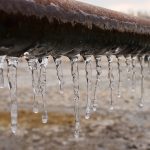If you live in Vegas, it must have dawned on you by now that the concept of having an endless supply of water is presently an illusion. Lake Mead, which supplies more than 90% of the state’s water, is rapidly drying up, thanks to the ever-increasing population.
Subsequently, the authorities are urging everyone who has a home in Las Vegas, to not only avoid misusing the water but to also come up with methods of saving it. Apparently, so much water gets lost through the kitchen, toilet, laundry, baths, irrigation, lawn maintenance as well as leaky faucets.
If you are a patriotic Las Vegan wishing to help out, here are a few practical solutions, you can use to make your home water efficient.
How to prevent water loss in the Kitchen
i. Use water efficient dishwashing solutions
Since disposing of food waste through the sink disposal unit consumes a lot of water, why not come up with alternative methods. A reasonable option would be to create a compost pile, where you can discard the wastes.
How to save water in the toilet
i. Fix the leaks
A leaky toilet can waste up to two hundred gallons of water in a day. Unfortunately, toilet leaks are a common problem in homes and are not readily detectable. In fact, it can take a homeowner several weeks to realize that the toilet is leaking, which can lead to the loss of significant amounts of water. Avoid such wastages by using a leak detector fluid to inspect if your toilet is leaking, and then get a plumber to fix it, in case it is.
ii. Use low-volume toilets
Older toilet models have a volume capacity of 3 gallons, while the new modern versions use approximately 1.6 gallons. Which means, if you have the old models you will be using 1.4 gallons of water more than if you had a new toilet.
iii. Control the flushing
At times, the wastage of water is due to unnecessary flushing of the toilet, which in turn stems from throwing the wrong stuff in the head. Instead of discarding everything in the lavatory, reserve it solely for long and short calls, and throw other wastes in the trash. Doing so will cut the number of times you will need to flush.
How to save water in baths and showers
Another area where significant amounts of water get wasted is in the bathtubs and showers. If your Las Vegas home has tubs, instead of rushing to turn on the faucet, take the time first to close the drain, and then proceed to fill the tub up to one-third full.
Moreover, when taking a shower, do not keep the water running throughout. Instead, turn it on to get wet, off when you are lathering and on again when you need to rinse off. Similarly, keep the water turned off when you shave or brush your teeth.
How to save water with your faucets
i. Repair the leaking taps
ii. Invest in low-flow faucets
Take the time to examine the amount of water that flows from your faucets. Find out the per-minute flow of your existing faucets, and if there are any taps whose per-minute flow rate is 2.5 gallons or more, consider replacing them with those that have a lower per-minute flow rate. Alternatively, you could install a low-flow aerator to reduce the water flow. A major attraction of the aerators is that they come in a variety of spray patterns, which helps to enhance the attractiveness of your faucets.
How to save water when doing laundry
The first thing you should do is purchase a water efficient washing machine. Look for one that uses between 20 to 27 gallons of water. However, if you have the type that can hold up to 56 gallons of water, consider adjusting the variable settings to the minimum water volume. If your model is the older version that lacks load size setting features, make sure to operate the machine only with full loads, and use the shortest wash cycle possible.
How to save water on the lawn
Every Las Vegas homeowner (http://www.costellomgmt.com/summerlin-property-management/) longs to have a well-established lawn. Actuating such a fine turf, nevertheless, requires among other things plenty of water, which can cause many owners to waste too much water. Avoid falling into such a trap by employing the following tips.
i. Water your lawn efficiently
ii. Check your lawn mowing
Another way for you to save water in your yard is by preventing your plants from needing too much water. Make sure your lawn mower is sharp and that you adjust it to the highest height possible. It will give you a clean cut that encourages your grass’s roots to grow deeper, and the blades to retain more moisture. Lastly, do not remove the grass clippings from where they fall. Rather, leave them there to act as mulch, which reduces evaporation.
Moving to more environmentally friendly strategies will only benefit you more and more over time. Look to slowly implement these strategies and watch your water bills drop.








